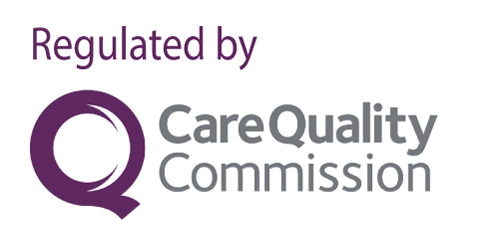Our screenings
Stroke

Caused by the blood supply to the brain being cut off, a stroke is a serious and often life threatening condition requiring immediate medical treatment.
The figures speak for themselves. Approximately 152,000 strokes are suffered in the UK each year, equating to one every 3 minutes and 27 seconds. On a global level, there are almost 17 million first time strokes each year, that's one every two seconds.
Stroke is the fourth single largest cause of death in the UK and the second in the world. In the UK alone, there are over 1.2 million stroke survivors.
There are two different types of stroke:
- Ischaemic - Caused by a blockage cutting off the blood supply to the brain, they account for 85% of all strokes.
- Haemorrhagic - Caused when a blood vessel bursts within or on the surface of the brain, they account for approximately 15% of all strokes.
Before suffering from an ischaemic or haemorrhagic stroke, some people experience Transient Ischaemic Attacks (TIAs), or mini-strokes. These mild strokes are caused by a brief interruption of the blood flow to the brain.
A stroke can have a huge impact on the survivors, affecting mobility, speech, balance, co-ordination, vision, spatial awareness, swallowing, and bladder and bowel control.
Causes of Stroke
Ischaemic and haemorrhagic strokes have different causes.
Ischaemic Strokes
The most common type of stroke, Ischaemic strokes occur when a blood clot blocks the flow of blood and oxygen to the brain. These blood clots usually form when the arteries have been filled with fatty deposits, known as plaques, causing them to become narrowed or blocked over time.
Risk factors include:
- Age
- Smoking
- High blood pressure
- Diabetes
- Excessive alcohol intake
This type of stroke can also be caused by an irregular heartbeat, known as atrial fibrillation, causing blood clots in the heart that then break up and become lodged in the blood vessels that supply the brain.
Haemorrhagic Strokes
Less common than Ischaemic strokes, Haemorrhagic strokes are caused by a blood vessel within the skull bursting and bleeding in and around the brain.
The main cause of this type of stroke is high blood pressure, which can weaken the arteries in the brain, making them prone to splitting or rupturing.
Risk factors include:
- Being obese or overweight
- Excessive alcohol consumption
- Smoking
- Lack of exercise
- Stress
Another cause of this type of stroke is the rupture of a brain aneurysm or abnormally formed blood vessels in the brain.
Screening for Stroke
There are a number of preventative screening tests that can help patients to understand their risk of stroke, including:
- Atrial Fibrillation Screening - This procedure is used to detect an irregular heartbeat. It involves attaching EKG electrodes above the wrists and ankles.
- Complete Lipid Panel Screening - This is taken from your blood sample and measures three different kinds of lipids in the blood as well as total cholesterol.
- Glucose Screening - This is taken from your blood sample and measures blood sugar levels after 6 hours of fasting.
- C-reactive Protein Screening - This is taken from your blood sample and measures C-reactive protein levels in the blood.
If you require any further information about screening for stroke or PVD, or to arrange a consultation, please get in touch. Our skilled and experienced team are always on hand to provide assistance.
Blood pressure
A significant amount of research has indicated that raised blood pressure is a major risk factor for strokes and heart attacks. With blood pressure results varying between a maximum (systolic) and aminimum (diastolic) pressure, your blood pressure is measured by looking at the pumping action of your heart and how it exerts pressure on the walls of the blood vessels.
Blood Tests
Using the very latest Roche diagnostics equipment and telemedicine equipment, our highly skilled team will break down your blood sample into 25 constituent parts in our laboratory. This allows us to provide thorough analysis, reporting, and clinically credible data.
General Health Markers
General Health Markers screening involves looking closely at the protein, albumin, and iron levels in your body. Changes in these levels occur due to a number of liver and kidney disorders, so it’s important that they are monitored frequently.
Liver Function
Liver Function Screening is designed to measure the general health of your liver, whilst looking closely at the levels of bilirubin, liver enzymes and proteins in your blood. If elevated levels of these components are found in the blood, this can provide early diagnosis of a wide range of underlying liver problems.
Kidney Function
Your kidneys not only play an important role in regulating water in your body, but they also remove waste products, balance the body’s minerals and produce hormones.
Energy, Muscles & Bones
In order to live a happy, healthy and active lifestyle, it’s important that you stay on top of your muscle and bone health.
This screening looks closely at the Calcium levels in your blood (99% of your body’s Calcium is found in your bones) whilst assessing your Phosphate levels which are essential for energy production, bone growth and muscle and nerve function.
Gout Check
Increased levels of uric acid and creatinine in your blood stream could be a sign that you’re suffering from gout – a common and often debilitating form of inflammatory arthritis.
Heart Disease Assessment
Playing an important role in lowering the risk of cardiovascular disease, a Heart Disease Assessment incorporates a number of behaviour and risk factors, in order to measure the likelihood of you developing heart disease.
Biometric Analysis
Body composition analysers involve using bioelectrical impedance analysis technology to fully understand the body’s composition and key characteristics.
Lung Function
A Lung Function Test is used to screen for conditions such as Chronic Obstructive Pulmonary Disease (COPD).
COPD is a common disease, including chronic bronchitis and emphysema. 835,000 people have been diagnosed with the condition in the UK, and it’s estimated that an additional 2 million more have undiagnosed COPD.
Haematology Profile
A Haematology Profile is a full blood count that looks at the core components of your blood including:
• White cells - fight infection
• Red blood cells and their haemoglobin content - play a crucial role in the carrying of oxygen around the body
• Platelets – cell fragments involved in clotting
Bowel Cancer
Designed for detecting the early signs of Bowel Cancer, FIT testing is known as an immunological test that is used to detect bleeding caused by bowel polyps that is not always visible to the naked eye, as well, as well as blood in the stool.
Prostate Cancer
Prostate Cancer is one of the most common types of cancer affecting men – 1 in 9 men will develop prostate cancer in their lifetime and it is the second highest cause of cancer death in males in the UK.
Ovarian Cancer
Ovarian Cancer Screening is one of the most effective ways to successfully detect the early signs of Ovarian Cancer, and involves using advanced techniques in order to manage risk factors and determine whether or not your have the disease.


